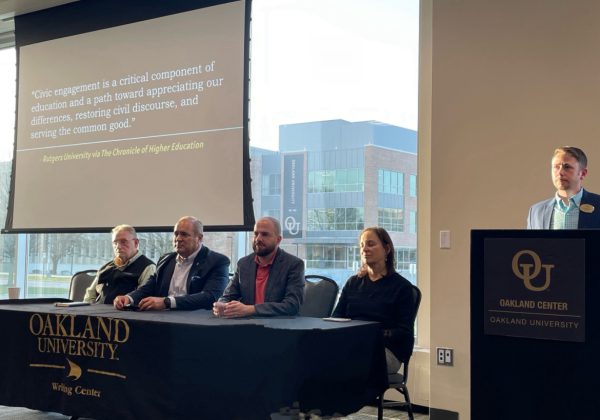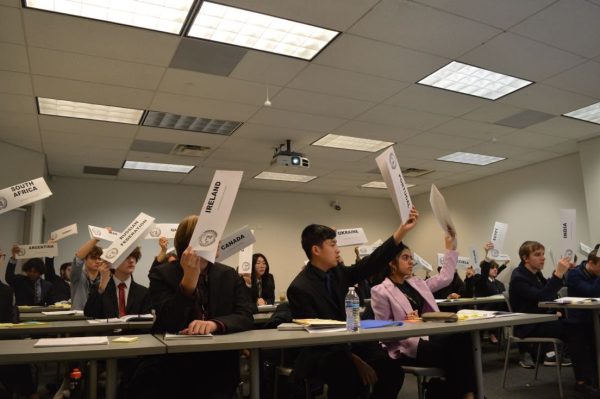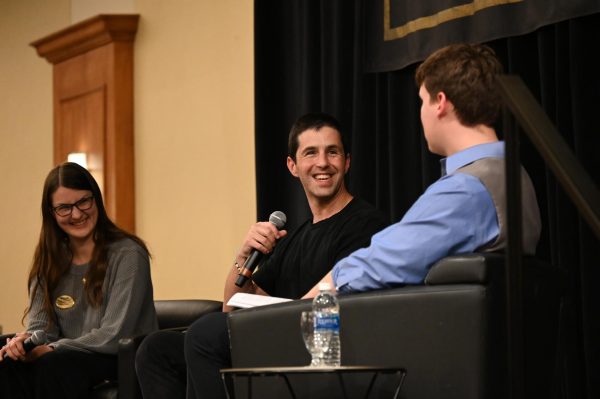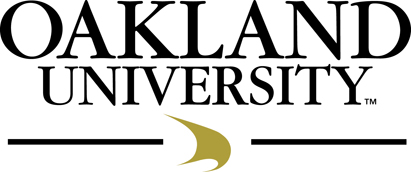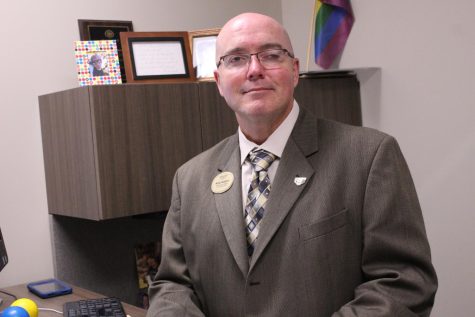Center for Michigan holds Community Conversation on campus
Event focused on discussion of government at the state and national levels
With presidential elections right around the corner, most voters are thinking about government at the national level.
However, The Center for Michigan wants to engage Michiganders in an ongoing conversation about state government and policy.
“The Center for Michigan is a ‘think-and-do’ tank founded by former newspaper publisher and University of Michigan Regent Phil Power in early 2006,” according to its website. “The Center’s objective is to make Michigan a better place by [sic] encouraging greater understanding and involvement in policy issues among the state’s citizens and making sure their voices are regularly heard.”
The nonprofit works to fulfill three goals: engage, or initiate small-group community conversation; inform, through their online publication Bridge Magazine; and achieve, or facilitate change in Michigan’s government.
The “engage” part of the equation was fulfilled in part at Oakland University on Tuesday, Oct. 11 during an event called Community Conversation.
Dwayne Barnes, engagement strategy and urban outreach coordinator for the center, asked a room of about ## of students and community members about the strengths and weaknesses of Michigan’s government regarding education, public health, environmental protection, low-income residents and the economy.
“It gives Michigan residents a chance to talk with us the way they talk around their kitchen table about issues that matter,” Barnes said.
Participants wrote down their answers, and there was time for open discussion, which was transcribed for the center’s records.
Barnes also collected demographic information. The center strives to match the demographics of Community Conversation participants to the demographics of the state.
The center’s Community Conversations have reached 40,000 residents to date, according to its website. It has also engaged more than 16,000 Michigan residents in outreach programs.
For the second part of the presentation, David Zeman, editor of Bridge Magazine, and Nancy Derringer, staff writer, explained one of the magazine’s initiatives – Truth Squad, which provides written analyses of the political advertisements and campaigns of Michigan candidates.
Truth Squad also addresses presidential candidates when they speak about Michigan.
“The ads are making fewer factual claims and more emotional appeals,” Derringer said, mentioning a recent advertisement against Hillary Clinton that said she lacks the strength to lead and showed her coughing. “They’re more pure advertising than they are informational.”
Zeman and Derringer showed commercials in which political candidates made claims about their opponents.
Candidates’ claims are ranked by Truth Squad on a four-tier system.
“No foul” means that statements are based on fact. Statements earn a “Warning” ranking if they are truthful, but could be harmful or misleading because of a lack of context. “Regular foul” statements distort a candidate’s record or facts, and “Flagrant foul” statements are completely false.
In one example, U.S. Congress candidates Lon Johnson (D) and Jack Bergman (R) accused each other of not being true northern Michiganders — the National Republican Congressional Committee suggested that Johnson lives in a penthouse in Detroit, and Johnson replied with a statement that Bergman lives part-time in Louisiana. Both attacks earned fouls.
The Center for Michigan has discussions like these scheduled for cities across the state. To find out how to bring a conversation to your community, email [email protected] or call (734) 926-4285.
To sign up to receive Bridge Magazine emails, click here.




